Ecstatic ascent and despair in the valley: Anna Fleming reflects on a year of grief in the mountains.
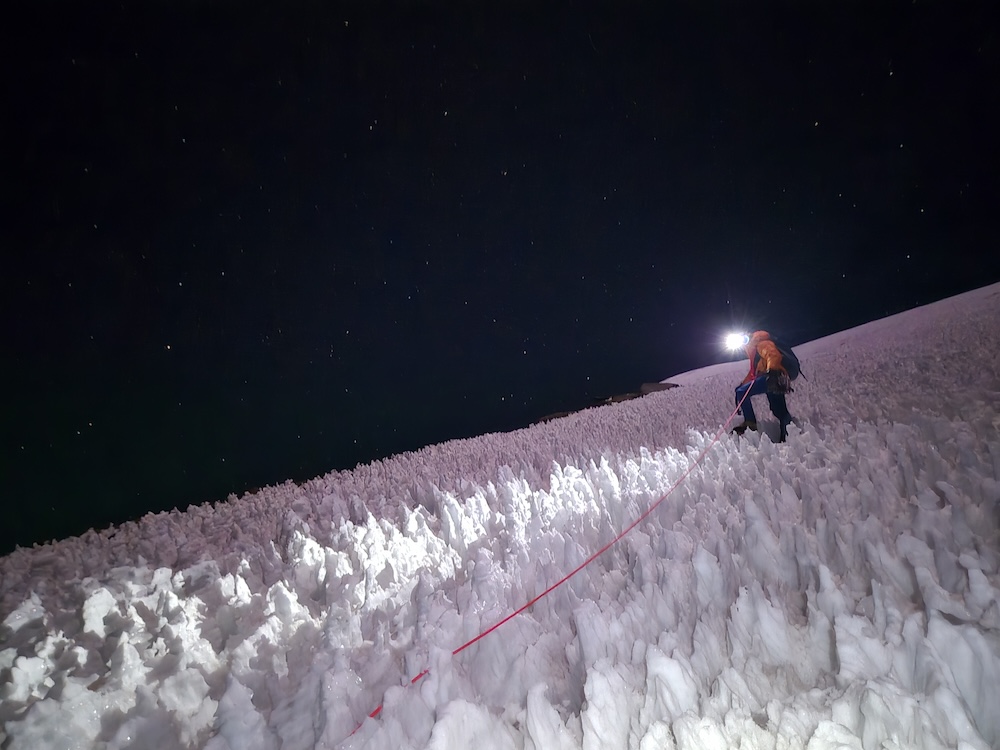
2024 was an odd year. A year of extreme highs and lows. This was the year I climbed the highest mountains I have ever been up. It was also the year that a close friend suddenly died.
Altitude changes your heart. Over the month of June, I lived above 3700 metres in the city of La Paz, Bolivia. From here, I headed out into the mountains with friends and the Aymara Indigenous Cholita Climbers, regularly pushing up above 4000, 5000 and 6000 metres. With each climb into thinner air, my heart strained. It beat harder and faster, hammering through my chest, pumping oxygen around the body. Over the month, I felt my heart changing. The organ adapting – growing or altering in some mysterious way – to cope better with the demands of the height.
Then the call came. My friend was dying. They had found a tumour in her brain. Six days later, they operated but it was too late. She was sedated now, awaiting death.
A terrible shock.
It made no sense.
Rebecca wasn’t ill before I left. When I flew out to Bolivia, we exchanged messages in Madrid airport. She was at Terminal 1. I had just left and was at Terminal 4: Ah dang! she said. If I had hung around for another 30 minutes we would have seen each other. Chatted, giggled, hugged. Exchanged notes from lives in action, hopes and dreams, funny little frustrations. The usual stuff. But instead we just missed each other.
Then when I flew back through the same airport a month later, she was gone. No one to spot on the escalators, no one to answer my messages. There was no body. She had been cremated.
The day she died, I was on the highest peak I’ve ever climbed. Sajama, 6542 metres high, a beautiful glaciated mountain on the northern edge of the Atacama desert.
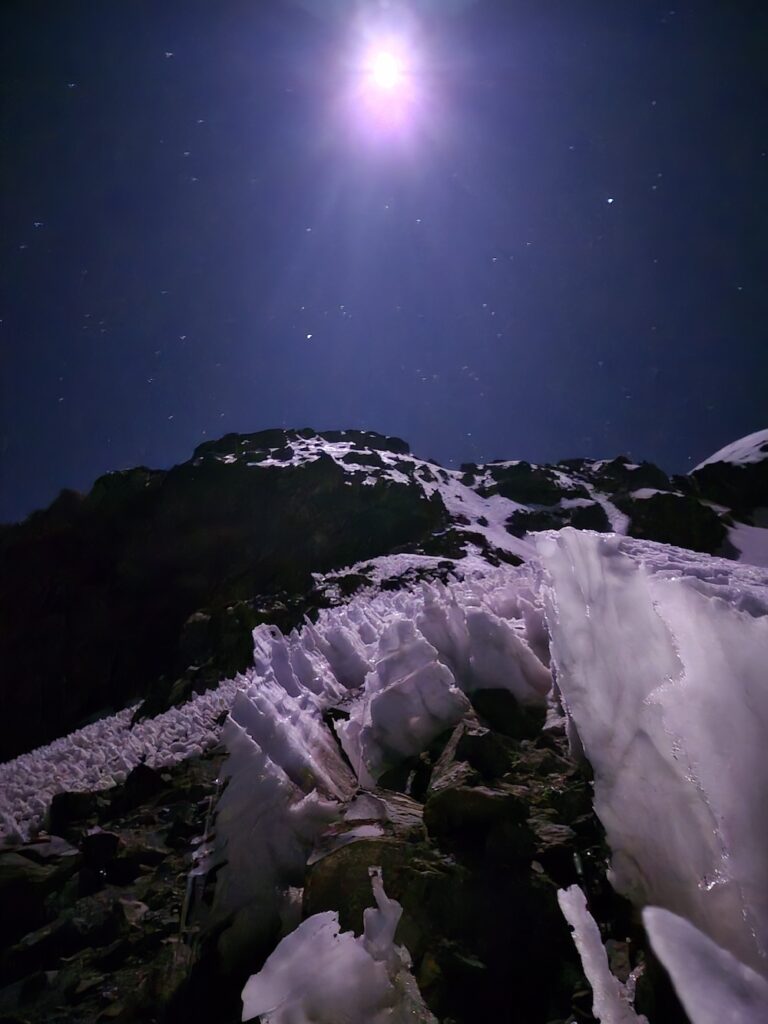
Starting in the middle of the night, we climbed freezing rocks and glacial ice on the border between Bolivia and Chile. Crystals glittering underfoot. Ice lit by the moon. Pushing up towards the moon and stars in endless, limitless space.
Roped together, ice axe in hand, we moved under the stars, hearts hammering, lungs labouring in the thin air, breathing rapid, breathing deep. The body at its limit – vital as never before – blood pumping oxygen through the straining muscles, powering the physique. My legs heavy as lead, but still determinedly placing one foot in front of the other.
Meanwhile, across the ocean, my friend was on a hospital bed, breathing out her last few hours.
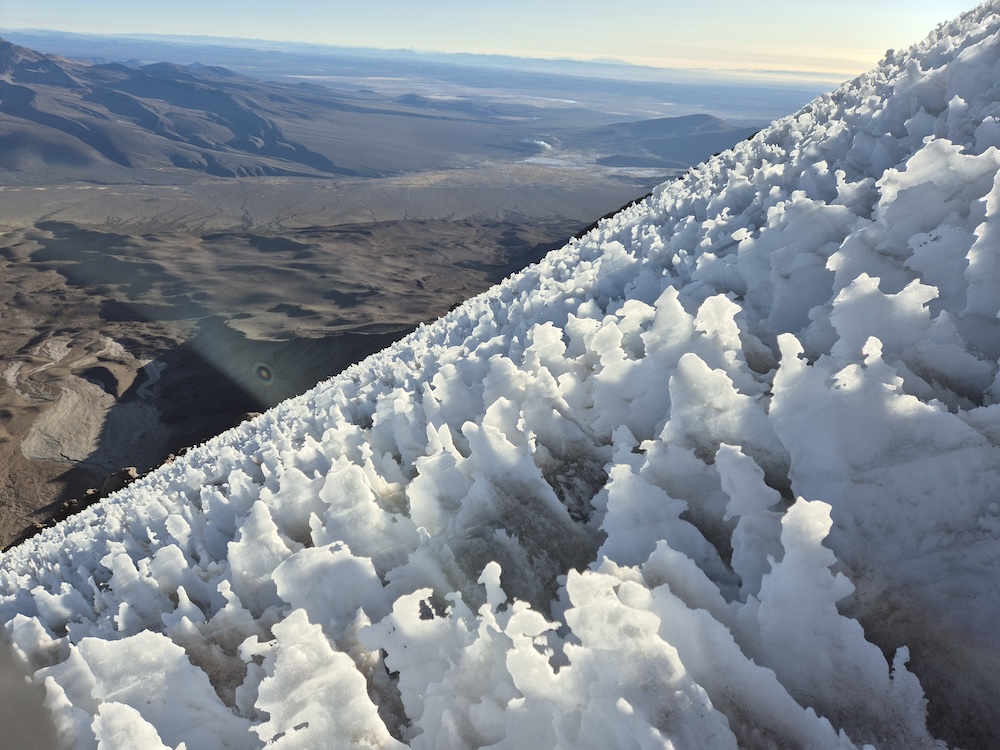
I came back to the UK, went to her celebration event in London – a beautiful day of flowers, friends and family, come together to say goodbye. But then what? What to do? How to come to terms with a loss like this?
Rebecca loved mountains, she loved climbing; she was full of life. In trying to understand her sudden non-being, I took to the rocks. It was all I could think to do. I climbed and climbed, in the Alps and elsewhere, and grieving in the mountains became its own strange thing.
There was always the ecstasy of ascent. The magic of my body working with granite and ice, senses keyed, intuition engaged, navigating big and beautiful faces, handling demanding formations. Mind and body flowing together in intense physical expression. Absolute focus, failing sometimes but still finding the high, the lift, the wonder.
Then, despair in the valley. Waves of grief rising, bursting through my body, taking over everything in a breathless, nauseating awful angsty pain. So raw, so sad. Missing my friend. (Where are you? Where are you? I kept asking.)
The vulnerability was intense. Away from home, I cried with strangers. I cried on buses and trains, with climbing partners new and old. In the rawness of fresh grief, I couldn’t help it. The grief had to come out.
I apologised but people were understanding. I was embarrassed, but they listened and in this raw state, I met deep humanity. My mountain, campsite and climbing companions listened. They hugged me. Many shared their own stories of loss. A friend, a sister, mothers, fathers, grandparents.
There was no shame in crying, I learned. We all do it. My tears invited others to open up. A Russian weightlifter told me how he cried when a mountain appeared. A Sheffield climber shared how her partner went oddly quiet one day while climbing something. What’s wrong? She asked. He was remembering his dad. An American woman cries at sunflowers. She showed me the huge yellow one she had tattooed on her thigh: a token of her mother.
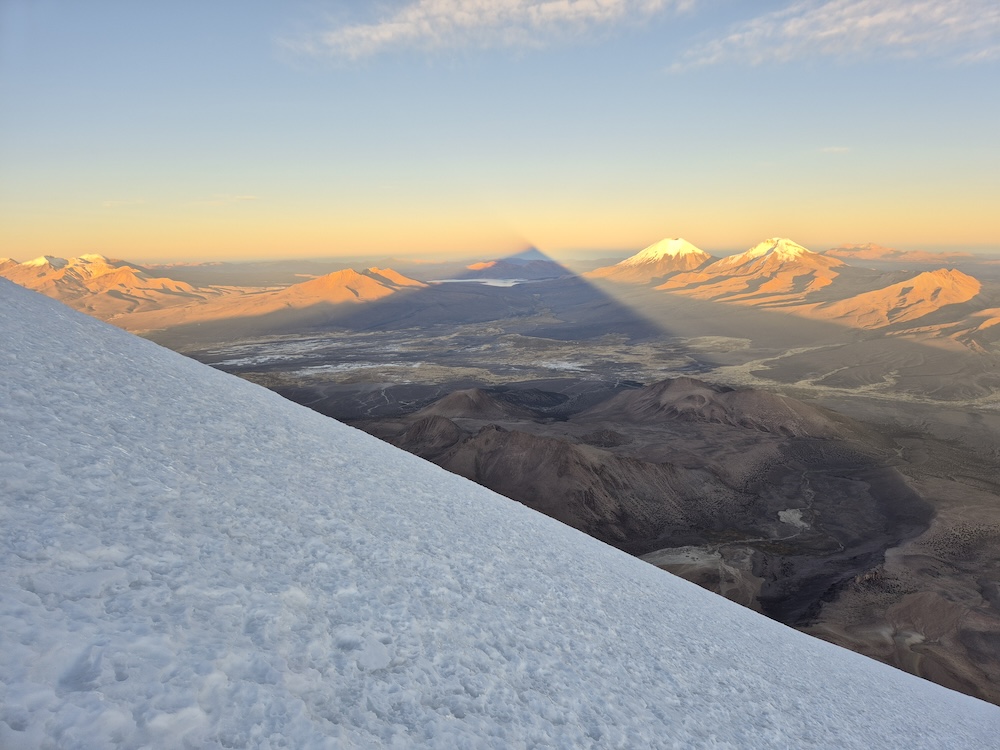
It was a strange summer. I climbed hard, my body full of energy. I was at peak fitness, high on acclimatisation. I climbed dream routes on dream mountains. Pacing over glaciers, ascending ice and rock, fuelled by purpose, I felt intensely alive, brimming with energy.
At the same time, death snapped at my heels. I had always thought I would live a long life but Rebecca who was strong and healthy was just 42 years old. Her sudden ending told me death could come at any moment. Living became sharp. Urgent. There is so much to do and perhaps no time at all…
As Rebecca was leaving this life, I noticed a new space appear in my heart. A gap – a hole – a little opening, that was not there before. After she died, the hole gained power and intensity. From it, tides of grief rose and I felt the anguish of a broken heart. Then, at other times, that same heart felt fuller and stronger, enriched by a friendship that has changed dramatically. I hold onto this space and she visits me sometimes in dreams.
While she lay in her coma in her final week, I imagined her mind loosened, travelling in a dreamy state of unconsciousness. Her spirit too. Rebecca was an artist and conceptual thinker. She listened to dark matter. She was exploring the parameters for understanding uncertainty. She was at the peak of her career.
As she slipped out of time, I imagined her with me, following the rhythm of my heart up the slopes of Sajama. Maybe she was with me – maybe not. But I carried her anyway and I like to think that she leapt free somewhere up there, at the highest point I could take her, her particles of being or non-being released into the upper stratosphere and travelling out, beyond, to roam among the galaxy, the surreal stars and dark matter.
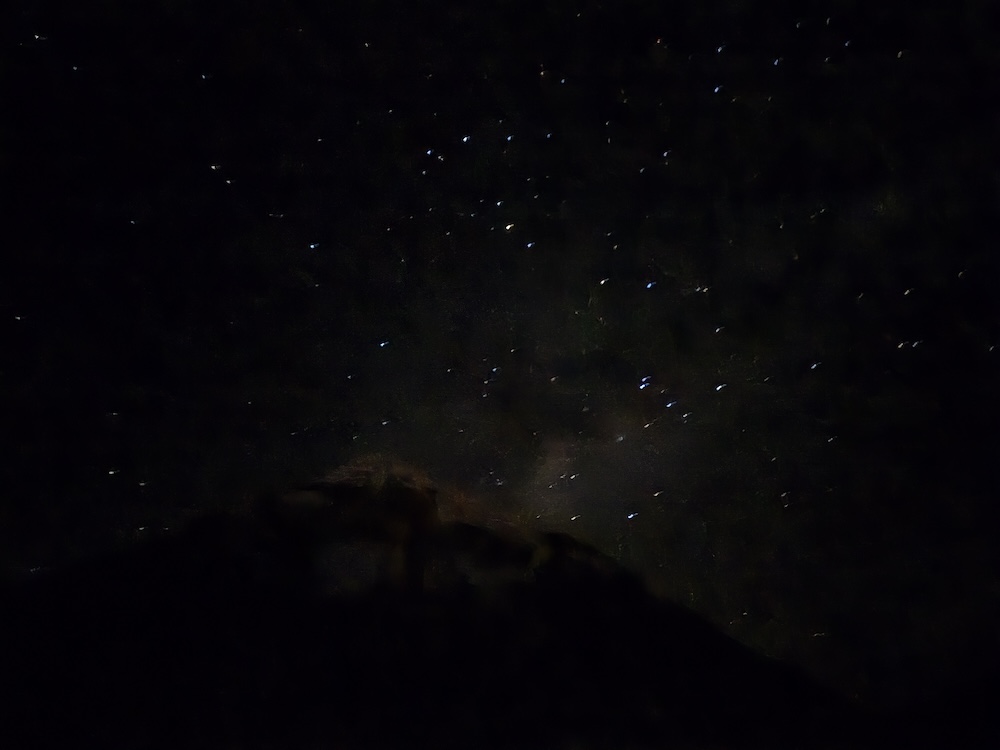
*
I write this piece in loving memory of Dr Rebecca Collins and in gratitude to everyone who held my ropes and heart this past year.